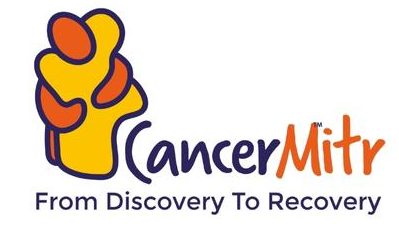
A Healthy Lifestyle & Early Screening Help Us Deal With Hormone Dependent Cancer:
Dr Sandip Bipte Shares His Expertise
Home Hormones are the chemical messengers of the human body that affect various processes, such as growth and development, metabolism, sexual function, reproduction, and mood. It is secreted by a particular organ called the endocrine glands. Women possess a pair of endocrine glands named ovaries which produce the female hormones progesterone and estrogen. Estrogen and progesterone play a pivotal role in the reproduction and sexual function of women. Estrogen consists of estrone, estradiol, and estriol. Like any other hormone, an excess of estrogen is a double-edged sword that puts the body at risk of several health issues, including cancer. As per cancers that develop due to estrogen, known as estrogen-dependant, include breast, ovarian and uterine cancer. CancerMitr spoke to Dr Sandip Bipte regarding estrogen dependant cancer, its prevalence and how to handle it. Dr Sandip Bipte specialises in oncoplastic breast surgery and has over 17 years of experience as a specialist. He shared his expertise with the CancerMitr team about the prevalence of cancer, notably breast cancer, due to the hormone estrogen. What role does estrogen play in the development of cancer? Estrogen is a hormone secreted by ovaries, adrenal glands and special fat tissues. Cancer is basically the abnormal lumps of tissue known as neoplasm or tumour that is malignant in nature – which means it grows, spreads and invades other body parts. Like normal body cells, cancer cells also have special proteins called receptors. If the cancer cells are estrogen receptor-positive (ER-positive), they bind to estrogen. Estrogen fuels the growth and spread of cancer cells. Estrogen-dependant cancer includes breast cancer, ovarian cancer, and uterine cancer. 60% of breast cancer cells are ER-positive, in my experience. Does estrogen trigger the growth of the cancers mentioned above? Yes. Excess estrogen levels trigger the cells, especially breast cancer cells. It can start with a small tumour or mutation; if it is ER-positive, the tumour size increases over time. So, is it safe to call estrogen a carcinogen? No. Of course not. Although it can trigger cancer cell proliferation, it is not right to call estrogen carcinogenic. Estrogen is essential for various functions in the human body, associated with sexual and reproductive health. It improves the conditions of the ovaries, vagina, and secondary sexual characteristics. It is the excess estrogen levels that cause health concerns, and cancer is one of them. Excess estrogen levels cause other health-related challenges like mood swings, blood clots, irregular periods, etc. In fact, all hormones are harmful in excess. For example, Androgen (male hormone) is linked with prostate cancer. A perfect hormonal balance is crucial. This is because the human body relies on these chemical messengers, and if excessive hormone secretion is causing physical or mental health problems, it must be treated. How do you find out if a particular cancer is estrogen dependent? The cancer cells are taken out during the biopsy and checked under laboratory conditions. If it has estrogen receptors, then it is called ER-positive. If it has progesterone receptors, then it is called PR-positive. If it does not have either of these receptors, then it is called ER-PR negative. Women with ER-positive cancers are given treatment for estrogen imbalance, like surgical removal of ovaries (which secretes estrogen) or medication. If excess estrogen does cause cancer in both women and men, wouldn’t it be a concern for those to undergo HRT? It is important to note the incidence of breast cancer in men is low compared to women. Women are vulnerable to breast cancer, ovarian cancer, and uterine cancer. Yes, HRT or hormone replacement therapy is a concern. HRT is a treatment involving estrogen and progesterone to treat health issues due to their deficiency. However, a medical expert always ensures that the HRT process is done systematically and healthily. Even then, there are cases where women undergo HRT without proper medical supervision and risk health issues due to excess estrogen and progesterone, including cancer. Are you suffering form breast cancer? Looking for a suitable treatment? Dr. Sandip Bipte is the best breast cancer surgeon & you can book an appoinment Now! Book Now There is a study in PubMed Central that mentioned the association of estrogen-dependant cancer with PCOD. Does the condition of PCOD increase cancer risk? Yes. It is because PCOD as a condition is associated with estrogen dominance or high levels of estrogen. Therefore, treatment of PCOD involves medications that control hormone levels, including that testosterone. According to research, estrogen treatment people take to treat conditions like prostate cancer leaves them vulnerable to breast cancer. At the same time, medications used to treat breast cancer, like Tamoxifen, are linked to uterine cancer risk. So how can one avoid dangers while taking medications? Simple, consult a doctor. Elevated levels of estrogen and low levels of estrogen are linked to cancer. Low estrogen level increases the risk of obesity, osteoporosis and cardiovascular issues Obesity is linked to cancer. A doctor prescribes medications by taking both sides of the treatment into account. Also, Tamoxifen is an excellent option for breast cancer treatment. The incidence of uterine cancer due to this medication is only 1 out of 10,000. Tamoxifen is prescribed in a well-calculated manner, and patients should not hesitate before taking these medications. One thing I would highlight is the importance of doctor consultation. For example, people have the tendency to take oral contraceptives or birth control medications without proper guidance. It leads to hormone imbalance, including elevated estrogen levels How is estrogen dependant cancer linked to the absence of pregnancy and breastfeeding? Pregnancy and breastfeeding lead to a change in estrogen and progesterone levels. Estrogen levels decrease during the breastfeeding period. Now, imagine being exposed to high estrogen levels for a long time between menarche (first period) and menopause (last period). Prolonged exposure to estrogen increases the breast cancer risk. Several studies linked both breast and ovarian cancer to high estrogen levels as a result of no pregnancy and subsequent breastfeeding process. What about women who choose not to have children? How can they avoid estrogen-dependant cancer

